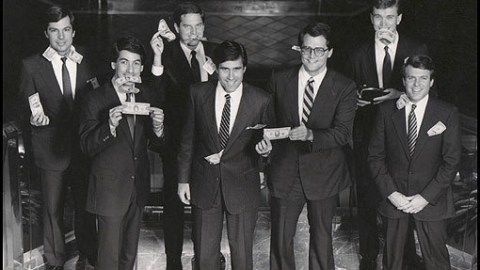The Bain Capital Way: Create as Much Value at the Lowest Cost as Fast as You Can

What’s the Big Idea?
If you’re in a horse race–and that’s how Bill Bain would describe private equity–you don’t try to teach the lamest horse how to run. Instead, you pick a thoroughbred and teach it how to compete more successfully against the competition.
Private equity firms look to engineer growth, introduce new products, reorganize or change a company’s leadership.
Ed Conard, a retired partner of Bain Capital says that one of the company’s key insight was that “companies are in fierce competition with each other to deliver as much value as they possibly can at the lowest cost as fast as they possibly can. So they’re constantly trying to make those improvements, innovate to create more value, cut costs to deliver more value at lower and lower cost. And what do investors capture? They capture the difference between themselves and the next best competitor.”
Watch the video here:
What’s the Significance?
While Conard does not speak for Bain Capital, he says that the firm worked extremely hard to help two steel mills succeed in the late 1990s. With one business in particular, Conard says “we killed ourselves to make that business as successful as we could possibly make it.” In other words, Conard says Romney and his Bain colleagues were not plotting to destroy a company and fire its workers.
The Obama campaign has taken aim at Mitt Romney’s record at Bain, and his dealings with these still mills in particular, but Conard says “I think it’s a misnomer to think that the only thing we did was try to take the weak and the lame and fix them. We were looking at a whole broad range of investment opportunities and trying to find in each circumstance what would make the company more successful and then go about implementing those things.”
Follow Daniel Honan on Twitter @Daniel Honan




